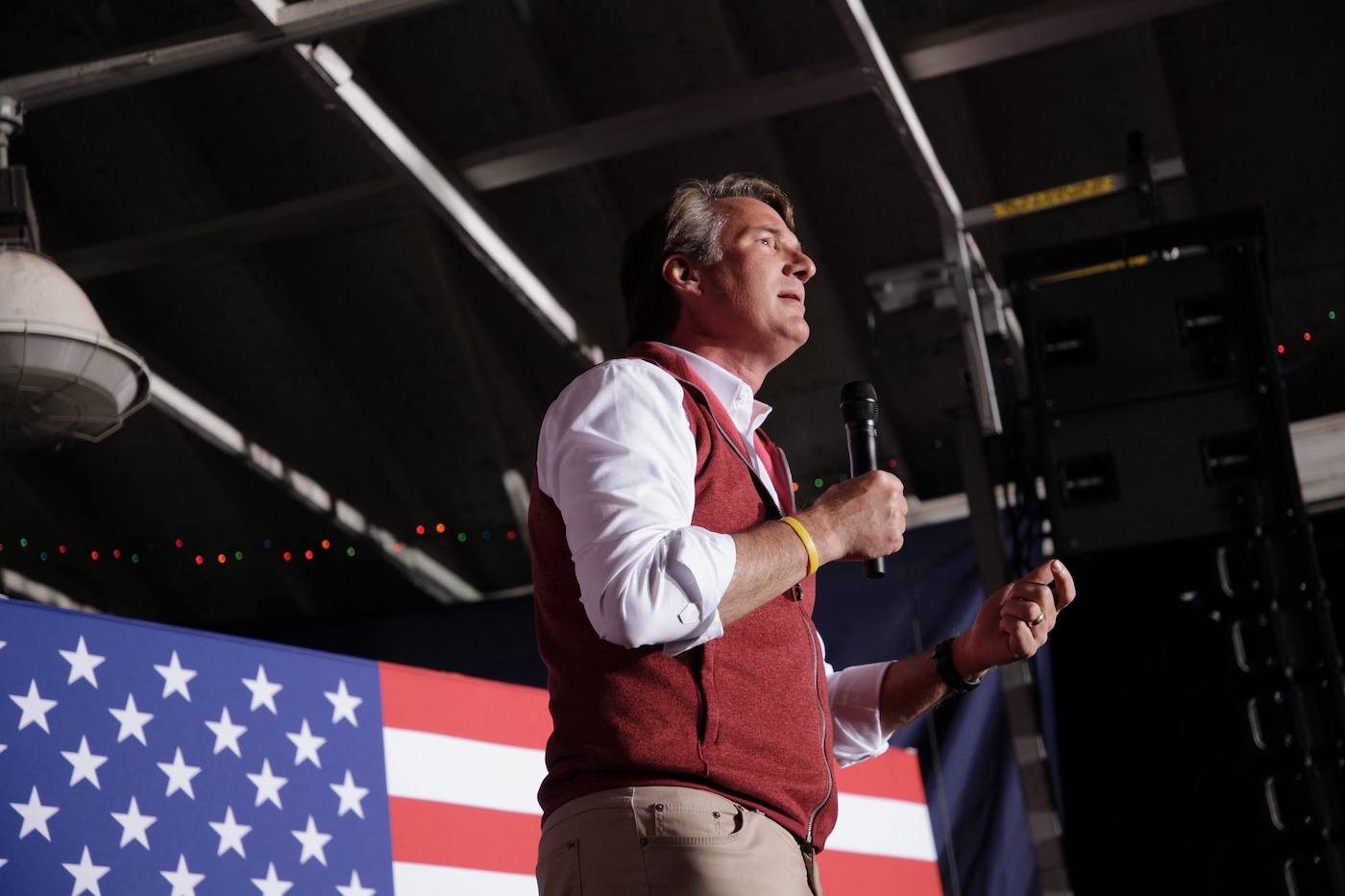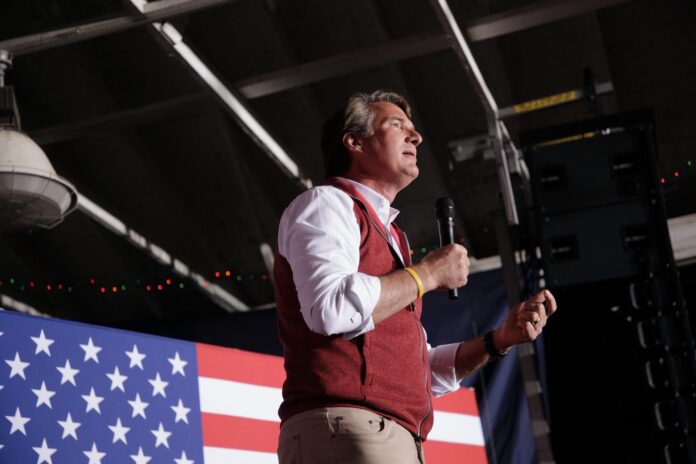
The Biden-Harris administration and Democrat litigators appear to be jointly executing a lawfare assault against the integrity of our elections. In the face of this onslaught, will Americans’ voting rights be sustained?
If an Oct. 30 ruling is any indication, it appears the Supreme Court at least may be willing to step into the breach in defense of our republic — a hopeful harbinger amid an expected flurry of 2024 election-related litigation.
In a 6-3 ruling, with the court’s three most leftist justices dissenting, the court issued an order striking down a preliminary injunction backed by the Biden-Harris Justice Department thereby protecting Virginia’s effort to remove more than 1,500 self-identified noncitizens from the voter rolls. In so doing, the court delivered a shot across the bow of a DOJ in effect laboring to protect the non-rights of non-Americans to interfere in our elections and the federal judges who had validated the administration’s efforts.
At issue in the case is the National Voter Registration Act of 1993 (NVRA) and its regulations for removing voters from the rolls, about which lower courts have issued conflicting opinions.
Colloquially known as the “Motor Voter Act,” the bill aimed to increase the number of “eligible citizens” who register to vote in federal elections, while “protect[ing] the integrity of the electoral process” and “ensur[ing] that accurate and current voter registration rolls are maintained.”
Section 7 of the NVRA lays out requirements for cleaning the voter rolls. It stipulates that authorities may remove registrants from eligible voter lists should they ask to be removed, be convicted of a crime, end up mentally incapacitated, or change residence. The bill dictates that authorities maintain a so-called quiet period within 90 days of federal elections, narrowing these removal efforts. During this time, authorities may not implement “systematic” voter removal programs, nor may they remove from the rolls those who change their residence.
The rationale for the provision is that it prevents states from mass-removing voters based on allegedly crude computerized identification-matching exercises that risk wrongly removing eligible voters from the rolls with insufficient time to correct errors before elections.
Enter Virginia’s program to keep noncitizens off the voter rolls, which it executed within the three months leading up to Nov. 5. Pursuant to state law, the commonwealth’s Department of Motor Vehicles sends a monthly list of all those self-identifying as noncitizens in transactions with the agency to Virginia’s Department of Elections.
The department transmits such information to relevant local registrars, who conduct a “manual, person-by-person verification” to confirm individuals identified by the state’s DMV as noncitizens match names residing on the voter rolls, according to court filings. The registrars then contact implicated individuals via mail, giving them a couple of weeks to attest to their citizenship and maintain their eligible voter status, before sending a final cancellation notice.
Still, the state’s voter registration processes serve as a fail-safe, allowing anyone wrongly removed from the rolls to reregister and vote through Election Day, according to the state.
In August, Republican Gov. Glenn Youngkin issued an executive order directing the commonwealth’s DMV to increase the cadence of information-sharing with its elections department by providing a daily list of those identifying as noncitizens. It also conducted an “ad hoc review” of DMV records over the prior year to identify other potential noncitizens on the rolls, in the form of those indicating they were U.S. citizens in interactions with the agency but who presented conflicting legal presence documentation.
Despite the fact that Virginia undertook these activities pursuant to a 2006 law precleared by the Justice Department — activities executed without issue historically, including within 90 days of prior elections — the Biden-Harris Justice Department and like-minded private plaintiffs cried foul. They filed separate suits contending Virginia’s program violated the NVRA’s quiet period provision.
The cases were consolidated into one and heard by an Eastern District of Virginia trial judge, who ordered a preliminary injunction halting Virginia’s efforts. A three-judge panel at the Fourth Circuit Court of Appeals largely upheld the ruling. Under the injunction, the commonwealth would have to return the noncitizens to the rolls — a population that could not vote without committing a felony — just days out from Nov. 5.
The Arguments
So Virginia took its case to the Supreme Court, where the commonwealth marshaled three particularly strong arguments for why its efforts to remove noncitizens from the rolls were lawful and the court ought to stay the injunction.
The first argument was that relevant provisions of the NVRA do not apply to noncitizens. The NVRA’s voter removal regulations, including during the so-called quiet period, govern “eligible applicants” who become “registrants.” But noncitizens’ registrations, the state argued, “were void ab initio” — illegitimate and therefore invalid from the start.
“If a person cannot become a ‘registrant’ because he is not and cannot be an ‘eligible applicant,’ then he cannot become a ‘voter,’” the state argued. “And if the person is not a ‘voter,’ eligible or otherwise, then he is not protected under the Quiet Period Provision.”
Conversely, Virginia suggested that by the Biden-Harris administration’s logic, if noncitizens — a class of individuals never referenced in the relevant section of the NVRA — are protected under the quiet period provision, then this implies they are “registrants.” And since “registrants” can only be removed from the rolls on prescribed grounds such as death or criminal conviction, “then the NVRA [would] bar[] States from removing noncitizens from its rolls at any time.”
This struck the commonwealth as absurd.
It contended that “the NVRA does not prohibit the removal from the voter rolls of persons, such as noncitizens and minors, who were never ‘eligible applicant[s]’ and thus could not become ‘registrant[s]’ or ‘voters’ in the first place.”
The quiet period provision, it added, “does not prohibit removing from the rolls persons who never could have validly registered in the first place.” Therefore, Virginia concluded, “States are free to systematically remove noncitizens, as well as minors and fictitious persons, at any time, including within 90 days of an election.”
Virginia’s second key argument was that its process for removing noncitizens was not systematic but rather individualized. The process, the commonwealth argued, is predicated on an individual attesting to his noncitzenship, a registrar manually matching that individual to the voter rolls, and a registrar corresponding directly with the individual before removing him.
While the lower courts emphasized that comparisons of electronic databases evinced that Virginia’s efforts were “systematic,” the commonwealth countered that “the use of electronic tools in a larger process does not automatically make the process ‘systematic,’ particularly where, as here, the process involved several layers of individualized review and contact with each person.”
“Indeed, if merely using a computerized database is enough to render a process ‘systematic,’ then nearly every modern process would qualify,” Old Dominion quipped.
Third, Virginia claimed the feds’ effort to combat its voter removal process represents an unconstitutional encroachment.
“This Court has made clear that the ‘Elections Clause empowers Congress to regulate how federal elections are held, but not who may vote in them,’” the commonwealth argued, citing the 2013 Arizona v. Inter Tribal Council case. “[F]orcing States to keep noncitizens on their voter rolls would cross the line into regulating ‘who’ may vote in federal elections.”
We Need Answers
While the Supreme Court’s staying of the preliminary injunction imposed on Virginia may indicate it concurs with these arguments, the court did not rule on the case’s merits and remained silent even on its rationale for granting the stay.
Consequently, states, Virginia argued, remain “unaware of when, or whether, they can remove noncitizens from the voter rolls. They need to know with certainty whether they can remove noncitizens at any point, only outside of the Quiet Period, or never.”
Election authorities deserve answers, and hopefully the court will ultimately take up the Virginia case and provide them. Similar questions are likely to abound for the court in cases to come concerning virtually every aspect of the 2024 election.
In 2020, it chose to punt on the most critical such case — to our great detriment. Let us hope that the court’s action in the Virginia case illustrates a new resolve for the court to grapple with such pivotal matters this time around.
Ben Weingarten is editor at large for RealClearInvestigations. He is a senior contributor to The Federalist, columnist at Newsweek, and a contributor to the New York Post and Epoch Times, among other publications. Subscribe to his newsletter at weingarten.substack.com, and follow him on Twitter: @bhweingarten.
NEWSLETTER SIGNUP
Subscribe to our newsletter! Get updates on all the latest news in Virginia.


